Can You Live Chat With HMRC?
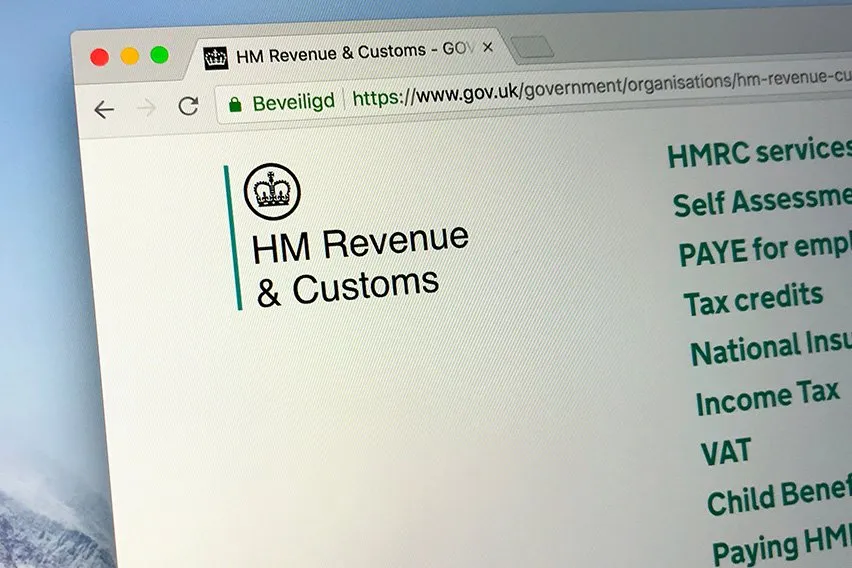
HM Revenue and Customs (HMRC) is known for being very particular about how it communicates. The tax office deals with the administration and collection of all the UK’s taxes. Each type of tax has its own department and set of government experts to help with those specific regulations. They all have their own contact details and preferred methods of communication to provide help.
For example, you can live chat about some areas of tax. But you need to use another method of communication to discuss other tax matters.
Find it a bit confusing? You’re definitely not the only one.
If you’ve done it, then you know that live chat isn’t as easy as calling to speak to a real human at FreshBooks.
Here’s What We’ll Cover:
How Do I Get in Touch With HMRC?
Can You Contact HMRC by Email?
Can I Speak to Someone About Tax Credits Online?
How Do I Get in Touch With HMRC?
Getting through to the right HMRC department—in the right way—is a bit tricky. It can also feel a little bit intimidating if you’re not quite sure who you need to talk to, or if your preferred method of communication isn’t available for the department you need.
From HMRC’s perspective, it wants to get you to the right person for help as quickly as possible. And it needs to do this with security at the forefront of their processes. That’s why it directs you to department phone numbers, and has some speech recognition software in place to narrow down your inquiry even further when you first call. It’s also why less secure means of communication are not appropriate for some conversations.
Lots of taxpayers are put off calling HMRC because of their well-publicised difficulties with long wait times. Hardly seems like help if you wait all day to talk to someone, and most people don’t have spare time just to wait for an advisor to answer. And the thought of discovering you’re in the wrong queue only to end up through to the wrong department is the ultimate frustration.
To help you choose the right method of communication and find the more commonly used departments, here’s our quick rundown of the best ways to contact HMRC.

Does HMRC Have Webchat?
Webchat is presented as an option within HMRC’s ‘support services‘ as something you’d use if you need help—rather than just the alternative means of communication that many companies offer.
You can only discuss pay as you earn (PAYE), self-assessment, value added tax (VAT), tax credits, and child benefit using webchat. The webchat advisors will not discuss other tax issues with you, even if they are related.
The Institute of Chartered Accountants in England and Wales (ICAEW) makes the point that these should be for general questions only because “they are not secure and personal details should not be exchanged.”
But HMRC is continually evaluating and expanding its digital capacity, and webchats are becoming more widely available in different departments—possibly even the first port of call for some taxpayer inquiries.
For example, if you’re contacting HMRC for help with VAT, you have a webchat option Monday to Friday between 8am and 6pm. You just click on webchat and then keep your eyes open for when an advisor is available. People are only encouraged to use the VAT phone line if their enquiry is “urgent.” And using the online (email) form means a 15-day wait for a reply.
It is important to keep a record of all communications with HMRC, including webchats. You can screenshot your conversation, save and print, or copy and paste into another document. The bare minimum is to note the date, time, and name of the advisor you spoke to.
Can You Contact HMRC by Email?
If online Monday to Friday chat doesn’t work for you, then email won’t either. Mostly because there is no readily available email address for direct contact with HMRC departments. This is largely down to security issues.
Didn’t know email’s so risky?
HMRC’s main concerns are:
- Identity verification
- Possible tampering during transit
- Others breaching privacy by intercepting emails
- Attachments containing significant security breaches
HMRC uses encryption and only writes fragments of your information in emails. For example, not including your entire unique taxpayer’s number, but only typing an identifying segment of it. And you may be asked to sign a disclaimer to continue an email conversation with HMRC.
If you’re initiating contact with HMRC, email is definitely not your best route.
Phoning HMRC
So online chat and email aren’t panning out, but phoning a number should, right? HMRC’s initial contact list is very clear. It leads you to specific information about the area of tax you’re inquiring about and gives you that department’s communication options. What’s really great is that there is also a list of the information you need, before you even call a number. You can also clearly see their operating hours.
To save you the hassle, here’s a helpline number list for the service departments you’re most likely to need:
- Income tax service: 0300 200 3300
- Self-assessment service: 0300 200 3310
- Employer service: 0300 200 3200
- VAT general enquiries: 0300 200 3700
- National Insurance service: 0300 200 3500
- Online debit and credit payment support: 0300 200 3601
- Construction Industry Scheme: 0300 200 3210
- HMRC online service: 0300 200 3600 (for technical issues accessing online services)
There is also a list of available extra support service numbers. For example, if you have a particular disability, or require the Welsh language option.
Can I Speak to Someone About Tax Credits Online?
You can manage your whole tax credits position online through your Government Gateway account. You can see your past and future payments ,and tell HMRC about any changes that affect your tax credits position.
But if you need to talk to someone at HMRC, you’ve got three options:
- Digital Assistant: They can help you with Universal Credit, renewals, and other tax credit information. This is a ‘virtual assistant’ (computer) that directs you to relevant online information.
- Webchat: You can have an online chat with a human advisor between 8am and 8pm, Monday to Saturday inclusive. They can provide more specific information that’s more directly relevant to your personal position.
- Phone: For things more urgent than digital chat can facilitate, phone 0345 300 3900 if you’re in the UK. From another country, phone +44 2890 538 192 between 8am and 6pm, weekdays only. Use NGT text relay if you can’t use the phone by dialling 18001 then 0345 300 3900.

Can You Text HMRC?
If you’re unable to hear or chat on the phone, then there is a speech relay service available. Dial 18001, then the phone number of the service department you need. You can then have your conversation through the relay service intermediary. This means that you type, they speak to HMRC, HMRC speaks to them, and they type its reply to you. It’s a truly amazing and accessible service.
What About Social Media?
HMRC’s Twitter handle is @HMRCcustomers. You can ask general questions and get very light service on Twitter, but you shouldn’t ever give any personal details about your own tax affairs (National Insurance number, email address, or any other tax-related number or info). And the official HMRC Twitter account will never ask you to provide any information or be able to resolve any specific issues. There’s also a more business-focused Twitter account @HMRCBusiness, which you may find more useful.
HMRC’s Facebook and LinkedIn pages are more for finding current information and advice about a range of tax issues, but not really getting the service you need.
There are loads of short explainer videos on HMRC’s YouTube channel that might give you an answer in a couple of minutes. It’s the same information, just presented in a different way.
Always make sure that you’re on an official page, and you don’t accidentally click through to any fake forums or websites.
Be Scam Aware
Whether it’s a live chat or another way of communication with HMRC, your security is absolutely vital. Fraudsters are extremely good at creating convincing texts, voicemails, emails, and phone calls that pretend to be from HMRC. The sheer variety of different HMRC scams is quite astonishing. The tone varies from “We owe you a tax rebate,” to “You owe us and we’re sending the police round if you don’t pay right now.”
As the consumer rights organisation explains:
“(HMRC) will never ask for your bank account details, personal information, or send you notifications by email or text for tax rebates, refunds, personal or payment information.”
The most important word there is never. Don’t give any personal information. If you get a suspicious email, don’t click on any links or open any attachments. If you’re in any doubt—even with a phone call—stop the communication, and get in touch using a real HMRC number. If it was a genuine call, it will be fine. HMRC wants to keep you safe, and will not take offense if you want to check.
Reporting attempts to defraud you helps HMRC and the police build a case against these criminals. Forward any dodgy emails or texts to HMRC.
RELATED ARTICLES

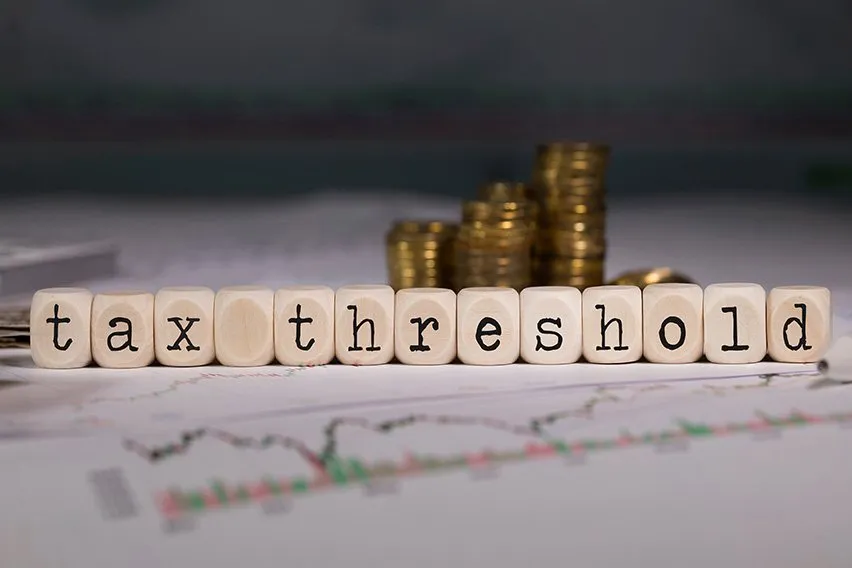 Income Tax Threshold, Rates, and Allowances for 2025-26
Income Tax Threshold, Rates, and Allowances for 2025-26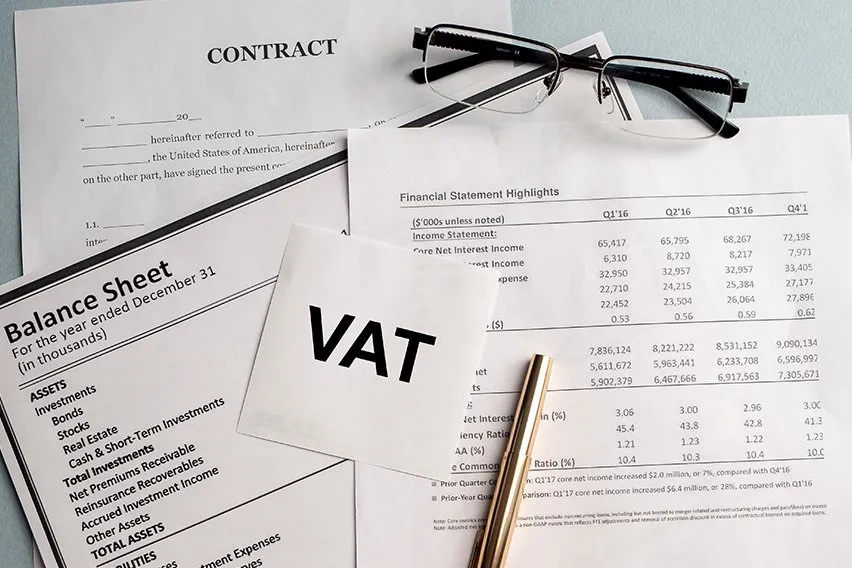 VAT on Services Outside UK: Learn the VAT Rules for Services That Take Place Outside the UK.
VAT on Services Outside UK: Learn the VAT Rules for Services That Take Place Outside the UK.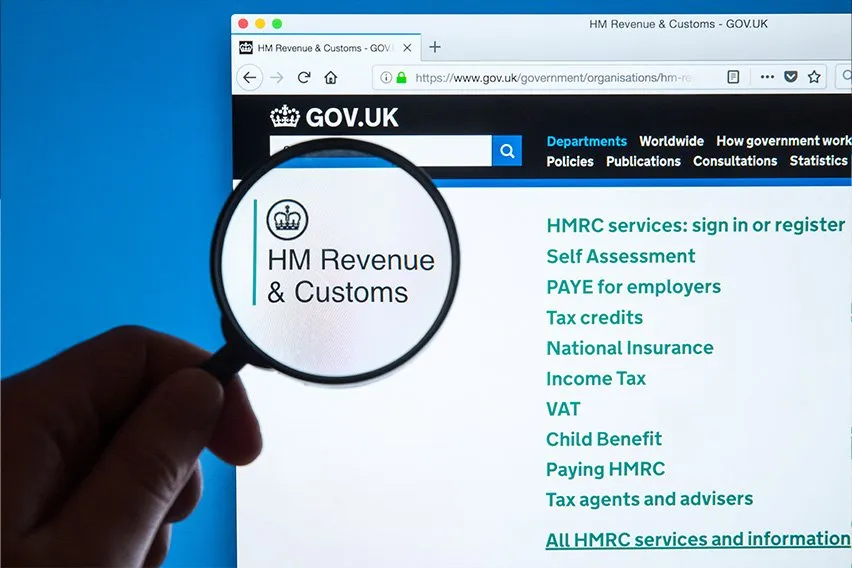 HMRC Tax Refund: Does HMRC Automatically Refund Overpaid Tax?
HMRC Tax Refund: Does HMRC Automatically Refund Overpaid Tax?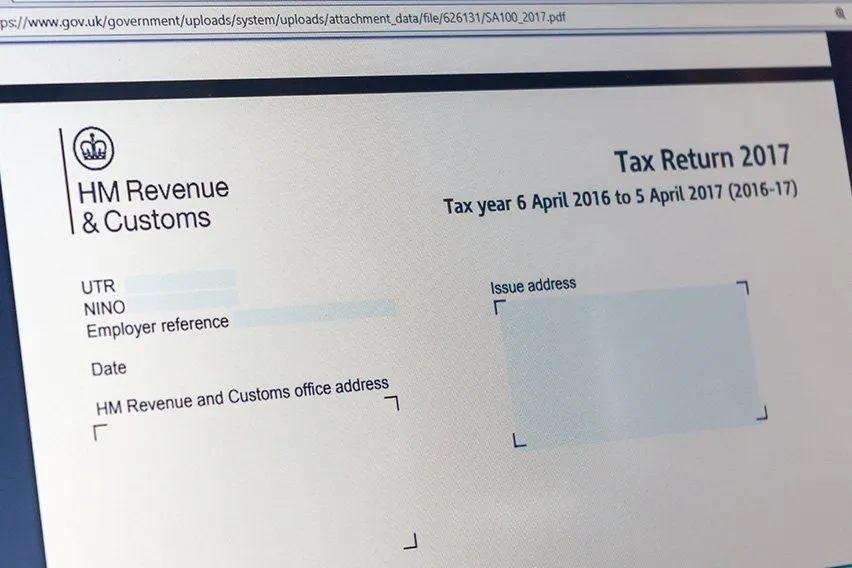 So, How Far Back Can HMRC Investigate Your Tax Returns?
So, How Far Back Can HMRC Investigate Your Tax Returns?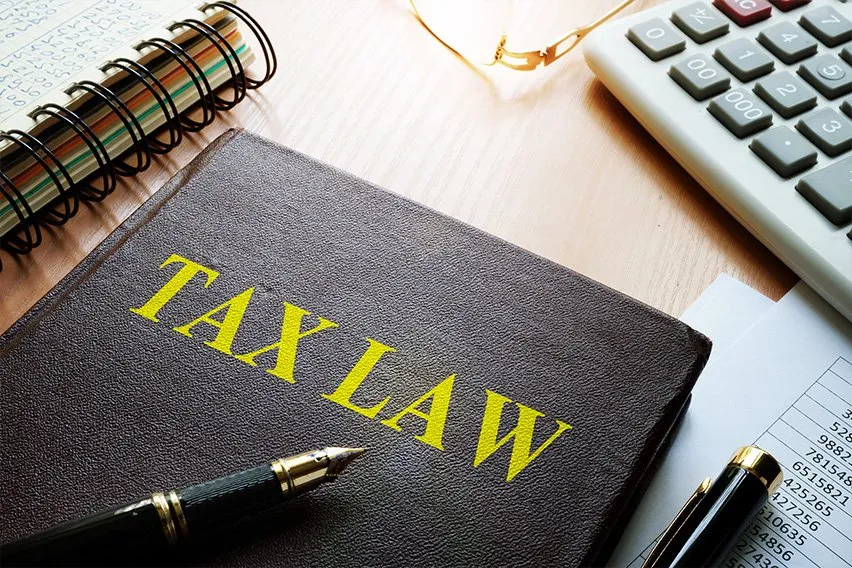 Inside IR35 – What Does Inside IR35 Mean?
Inside IR35 – What Does Inside IR35 Mean?